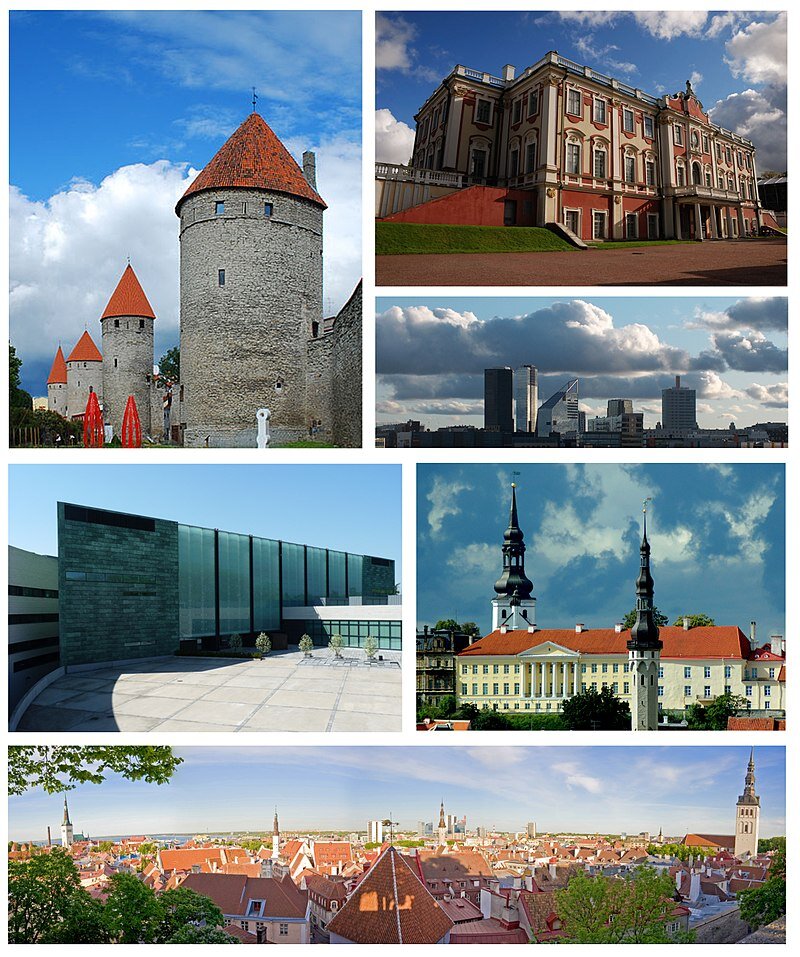Who are the Estonians, anyway?
First published in www.Postimees.ee (in Estonian) on Sat 21/11/2020
https://leht.postimees.ee/7115054/kohalik-vaade-millised-on-eestlased (in Estonian and with subscription only)
I married an Estonian. My two blonde sons are half Estonian and I pushed for them to be bilingual and attend Estonian school here in London.
The Estonian capital Tallinn - formerly known as Revel
Of course they now speak a hybrid language which I call ‘Eestlish’. Every now and then I hear my wife speaking it to our sons: ‘pane coati selga’ or ‘korja oma toysid üles’. In short Estonia is central to my life and the nation fascinates me. It had beguiled me even before I met my future wife in 2006. My love for the country started two years earlier when I flew there for the BBC to interview the-then prime minister Juhan Parts in his office in Tallinn. Like nearly all Estonian men Mr Parts wasn't really talkative. In fact I’d say that only Finnish men are less talkative in all of Europe. It must be why educated Estonian women tend to go shopping for their husbands overseas. In order to avoid the divorce courts, I must add that my own wife (from Pärnumaa) is probably atypical of Estonians. She is chatty, colourful and happy to meet new people.
Back in 2004, after our interview, Mr Parts showed me into the cabinet room where he was about to chair a full ministerial meeting. In front of me were about 15 ministers, 20 staffers, all with laptops and a giant screen. There wasn't a single sheet of paper in the room. It was the world’s first fully paperless Government. 16 years and numerous dire warnings about climate change later, I suspect that there are still fewer than a dozen eCabinet meetings in the world. Then, when I heard the role played by clever Estonians in developing Skype and TransferWise, I knew that this was a very interesting and very handsome land. And they are handsome. Not all of them obviously. But in general blonde hair and blue eyes are attractive features in most parts of the world. Unlike in the US or UK, obesity is not yet a problem. If Estonians continue to enjoy and respect the outdoors as much as they currently do, then becoming overweight shouldn't become an issue.
Since that first trip to Revel, I’ve learned a lot about the land formerly known as Aesti but I still can't speak the language which is probably the most difficult in Europe. It is neither romanic, nor germanic, nor slavic - just tough.
I have learned that saying ‘hello’ to a total stranger - as we often do in my native Ireland - is considered weird or even comical. I found that out when out for a walk in the countryside in 2008. On one occasion when I said ‘Tere’ to two women walking towards us on a narrow path, they simply started sniggering as if I was a simpleton.
And it’s not just greetings that are rare. Praise or thanks are also seldom heard in Estonia. Don't expect to be thanked more than once for anything. If you gifted an Estonian a brand new car, he or she will thank you and smile, take the keys and it will never be referenced ever again. I have learned this lesson the hard way.
Estonians also aren't so keen on physical contact. Even with their closest friends and family, hugging is rare - even after a long time apart. This makes Estonians look cold and distant to the untrained eye. I’ve often joked that Estonians (and Finns) must love the social-distancing which is needed due to Covid-19.
Not going out much due to a pandemic might give Estonians a chance to do what they do best: problem solve. They love seeing an issue and retreating into a bunker and emerging with a solution. It may not be the best, wisest or cheapest but it will work.
Apart from problem solving , another Estonian attribute that I’ve noticed in Estonians, is envy or even begrudgery. The solution to my neighbour getting a shiny new car might not be to work harder to get the money but to borrow to get an even shinier new car. Debt seems to be socially acceptable in Eesti in a way it would never be in Germany. But like shame, no one ever talks about debt or earnings. That’s far too personal. An Estonian would prefer to discuss their bowel movements rather than their paycheck. Compare that with an American who unlike an Estonian would gloat and even lie about his salary.
Taavet Hinrikus - the co-founder of TransferWise
The final major attribute I have noticed in Estonia is one of fatalism or even outright pessimism.
Due to the fact that the country has appeared, disappeared, appeared and disappeared again quite a few times over the last 100 or so years, Estonians expect, anticipate and almost even look forward to the next big cataclysm. Estonians rarely enjoy the moment because they know it can only be fleeting. It means that Estonians are often a negative bunch of people. My own wonderful wife cannot enjoy a week of sunshine in Ireland or Britain because she knows (or anticipates) that rain is due in 10 or 14 days and will remind me to prepare for inclement weather in blazing sunshine.
A rare Irish sunny day
That glass half empty attitude differs from Irish people, who have also experienced dreadful tragedy and hunger thanks to its much larger neighbours, but have remained an optimistic bunch or good ‘craic’ as we call it.
I am hoping that our two sons will be the perfect mixture of both realism and optimism as well as being able to problem-solve while remaining friendly and of course: handsome.
Joe Lynam is a Presenter on the BBC World Service
Why not take a listen to my latest Podcasts: Connected Investor, EUNICAST: Meet Visionary Europeans or Global News Podcast





